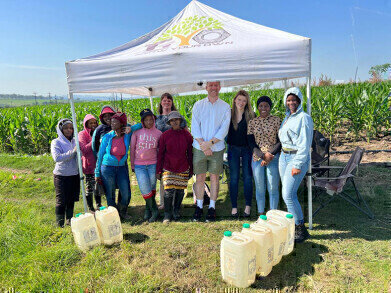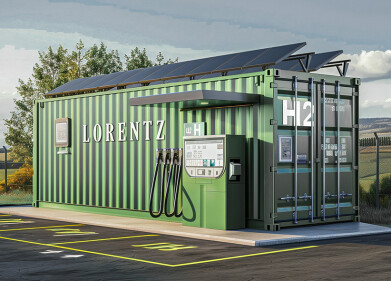Green Energy
Transformative Agri-Tech initiative to bolster South Africa's sustainable energy future
May 30 2024
An innovative UK-South Africa collaboration is poised to convert sugar into industrial-scale energy, marking a significant stride toward sustainable energy solutions in South Africa, and potentially outsmarting the Eldana Stalk Borer beetle in the process.
A pioneering project led by York-based AgriSound, a leader in agricultural bioacoustic AI technology, aims to address South Africa's energy challenges by revolutionizing its agricultural practices. Partnering with the UK Agri-Tech Centre and South Africa’s GYO Systems, the initiative seeks to enhance sugarcane yields through advanced pest monitoring and explore hydroponic technologies to boost bio-energy production.
Given that 85% of South Africa’s energy is currently coal-generated, this project could have a profound impact on the country's renewable energy landscape. AgriSound will utilize its innovative ‘Polly’ insect listening device to track and mitigate damage from pests like the Eldana Stalk Borer. The data collected will enable farmers to sustainably increase sugarcane production within existing farmlands, thereby avoiding the need for additional land that might compete with food or housing needs.
In addition to pest monitoring, the project will explore bio-energy production near urban areas unsuitable for housing or food crops through affordable hydroponic technologies. This focus includes Camperdown in KwaZulu-Natal, an urban area near major sugarcane farms, about 60km northwest of Durban and 20km southeast of Pietermaritzburg. The initiative aims to benefit underserved local communities by providing inclusive and accessible training on these technologies.
Representatives from the UK Agri-Tech Centre and GYO Systems will collaborate with participants from Camperdown on the hydroponic aspect of the project.
Dr. Jenna Ross OBE of the UK Agri-Tech Centre remarked, "The increased availability of sugarcane for bio-energy production can significantly replace fossil fuels. As biomass grows, it absorbs atmospheric carbon, which is then released during incineration, making biomass carbon neutral. Thus, sugarcane presents substantial economic and environmental benefits for South Africa.
"However, with crop yields under threat from pests and land use for crops under scrutiny due to competing food and housing demands, this project seeks to address two critical local issues simultaneously. We aim to work closely with local communities to create employment and economic opportunities."
South Africa's energy crisis, exacerbated by frequent "load-shedding" episodes leaving many without power, highlights the urgent need for reliable and sustainable power sources. Bioenergy could play a crucial role in addressing this challenge.
The project, led by AgriSound, has received over £200,000 in funding from Innovate UK’s African Innovation Collaborations for Net Zero Places.
Casey Woodward, founder and CEO of AgriSound, stated, "Our mission is to pivot South Africa towards a net-zero carbon economy by optimizing bio-energy production. This project is not just an agricultural innovation; it aims to reshape the country's energy landscape and empower its people to sustain these efforts independently.
"We have started this month, and our goal is to leverage nature-based solutions to revolutionize South African agriculture, tackle the energy crisis, and combat climate change. We anticipate significant economic and social benefits, alongside a reduced carbon footprint, all within 12 months.
AgriSound's long-term vision includes boosting energy generation while ensuring land remains fertile for future food and housing needs."
Carine Kroukamp, founder of GYO Systems, added, "We are thrilled to embark on this groundbreaking research, which has the potential to revolutionize South Africa's bio-energy industry. This project not only addresses the power crisis but also creates numerous employment and economic development opportunities."
Events
IWA World Water Congress & Exhibition
Aug 11 2024 Toronto, Canada
Aug 25 2024 Stockholm, Sweden and online
Sep 03 2024 Mexico City, Mexico
Sep 03 2024 Mexico City, Mexico
Sep 03 2024 San Diego, CA, USA














